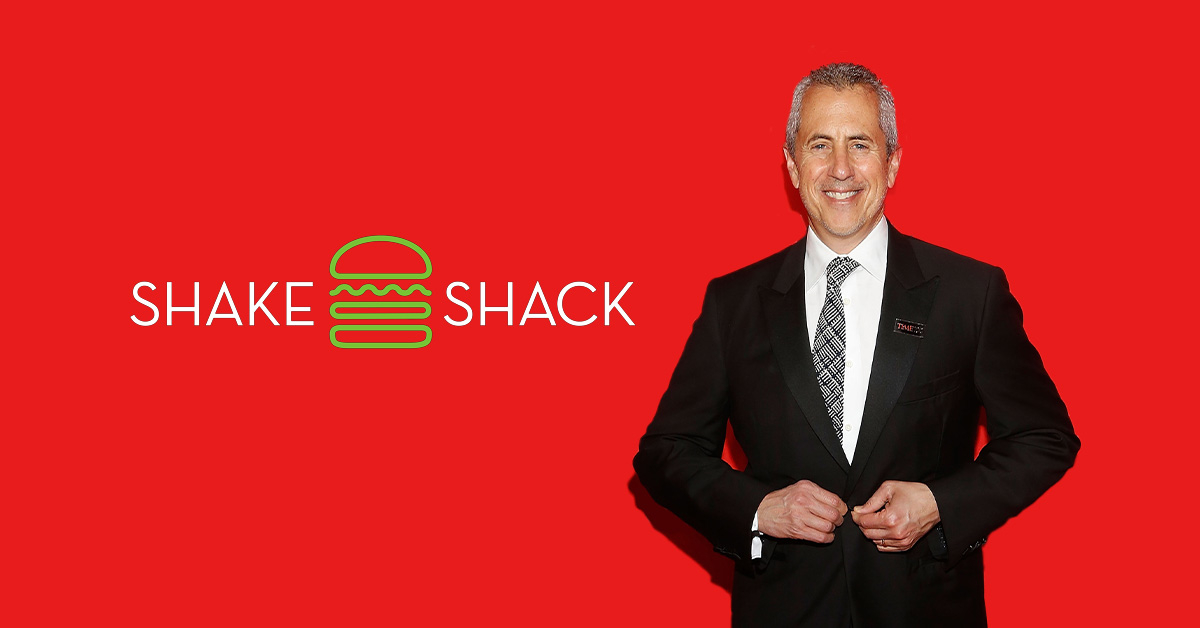
It’s hard to think of Danny Meyer, CEO of the Union Square Hospitality Group (USHG) and founder of Shake Shack, as anything but a restaurant mogul. But in 1985, Meyer’s sole concern was to open only one restaurant and run it as well as he possibly could.
Meyer knew the food would be good but needed something more to make his restaurant shine in the competitive New York City market. He focused on creating the best customer experience possible and building a strong staff that shared his philosophies, which eventually propelled him and his business to enormous success and staying power.
Keep reading to learn:
- How Meyer overcame his initial fear of expansion
- How he created his legacy of loyalty and hospitality
- Meyer’s formula for expansion and how to implement it in your own restaurant
Over 2,000 restaurant operators and guests share their views on restaurant technology, managing the labor shortage and how they envision the future of the hospitality industry.2021 Global State of the Hospitality Industry Report
Overcoming a lifelong fear
Meyer opened his first restaurant, Union Square Café, in December of 1985. He was in the restaurant every night, putting in face time with guests and staff alike, creating an atmosphere where everyone felt welcome, comfortable and well taken care of. One month after they opened, a two-star New York Times review from critic Bryan Miller turned the restaurant from a relatively unknown newcomer to a dining destination overnight.
While the review focused mainly on the food and atmosphere, a mention of the wine selection gave readers a glimpse into what would become Danny Meyer’s claim to fame, his hospitality ethos.
Miller wrote: “Danny Meyer, the 27-year-old owner, is passionate about his wines, and his highly personalized list offers many good selections[…] The young service staff is earnest and well informed, although unexpected waves of customers can occasionally throw the place off stride.”
With growth and praise for a new restaurant, it seems as though the next logical step would be to expand and grow the business to an additional location or new concept. However, that would not be the case for Meyer—at least not for another decade.
Meyer’s father was a serial entrepreneur who owned a travel business, restaurants and hotels. At 42, the senior Meyer had to file for bankruptcy and then again when he was 50 years old. Having a front-row seat to his father’s failures planted the idea in his mind that expansion equaled bankruptcy. However, after the death of his father and a chance meeting with chef Tom Colicchio he was able to move past his fears and opened his second location, Gramercy Tavern, in 1994.
Since then, Meyer has opened one restaurant every three to four years, on average, under the Union Square Hospitality Group. The secret to his success goes back to what came naturally to him when Union Square Café first opened in 1985: providing the highest level of hospitality possible.
Creating a legacy of loyalty and hospitality
Shortly after his third restaurant, Tabla, opened Meyer was making his rounds in the dining room when a guest named Susan Reilly Salgado, a business doctoral candidate at New York University, introduced herself. She had been spending time at the bar in Union Square Café, talking to staff and guests, and observing the positive culture of hospitality and community that Meyer had built. When Salgado told him she wanted to do her dissertation on his restaurants he agreed, under the condition that she would work as a host for six months.
After her research was complete, Salgado came to Meyer with a wake-up call: “There’s no system for opening restaurants without you,” she said, “and the more you open, the more diluted your impact becomes.”
The two worked together to create a curriculum based on Meyer’s philosophies of hospitality, staff morals and neighborhood involvement. Additionally, they came up with a method for hiring employees who shared Meyer’s values that they named the Hospitality Quotient, or “HQ.” From there, Meyer could open restaurants in different cities and eventually go on to franchise Shake Shack without worrying that his core beliefs would get lost in the process.
Writing a formula for successful expansion
The Hospitality Quotient that Meyer and Salgado came up with consists of a list of six “soft skills”—things that can’t be taught—that every USHG employee must have.
Taking these skills into account, Salgado and Meyer implemented a 49/51 hiring method. Every person hired into the company should have the technical skills to do their job, the 49%, but their Hospitality Quotient makes up the other 51%. Hiring employees with a high HQ score is what really tips the scales in terms of company culture, and a happy staff will always provide a better experience for customers.
“You distinguish yourself first and foremost by picking your team even better than the other guy. And I always felt that would be our advantage” – Danny Meyer
Kindness and optimism
“We work long hours, and I want to be surrounded by friendly, hopeful people. Skeptics rarely work out well on our team.” – Danny Meyer
When a leader—whether it be a shift supervisor or a GM—is kind, upbeat and optimistic, that trickles down to the rest of the staff. When your staff feels cared for as a person and not just a worker, they are happier in their roles and have a personal investment in the company, which results in a better experience for guests.
Learn more about how kind and optimistic someone is by asking interviewees about a time they’ve had to navigate a difficult situation, either personally or professionally, and what their thought process was behind the actions they took.
Intellectual curiosity
“You look at every day as an opportunity to learn something new. If we’re going to be on that road to excellence, we better have people that actually care about learning.” – Danny Meyer
Someone who thinks they already know everything will stagnate and hold the rest of the team back as you’re trying to propel your business forward. You can determine a candidate’s level of curiosity and passion for learning by asking them to describe something they’ve recently learned. As a bonus, ask them to teach you the basics to help gauge their level of excitement when it comes to sharing knowledge.
Work ethic
“It’s not enough just to be able to teach you how to do something. You’ve got to care about doing that job as well as it can be done.” – Danny Meyer
In HQ terms, work ethic isn’t just how hard someone works, but more so how much they care about their work and doing a good job. Find out more about a candidate’s work ethic by asking them what they love most about the industry and what they expect their career path to be. If hospitality is more than just a job to them, they are liable to put their all into the position and the rest of the team.
Empathy
“I define empathy in the way that a boat has a wake in its path. Someone who’s highly empathetic is not only aware of the wake that [they’re] leaving in [their] path, but cares. How do you make people feel as you go through life?” – Danny Meyer
Teamwork is important in any business, but especially crucial in a restaurant. Having a leader who can identify how their actions affect the team is key to keeping the restaurant ecosystem in balance. Their level of empathy will also affect how they interact with customers, so you can gauge this quality in someone by asking them to describe a particularly difficult interaction with a past guest and how they handled it.
Self-awareness
“Self-awareness is knowing what your own personal weather report is on any given day. We all wake up, some days feeling sunny and 72[…] Some days it’s hot and humid, some days it’s stormy. You’re not a bad person on those stormy days, but you should know it and you should do something about it.” – Danny Meyer
As Danny says, no one is a bad person for having a bad day, but being aware of it and not letting a sour mood seep into the rest of the team is what matters. A question to help learn about someone’s level of self-awareness can be as simple as, “Tell me something about yourself that no one knows?” If their answer seems to be more of a surface quality (for example, their favorite food) their self-awareness may not up to HQ standards.
Integrity
“Having the judgment to do the right thing even when it’s not in your own self-interest and even when no one else is looking.” – Danny Meyer
Integrity can be a difficult skill to look for. After all, someone with no integrity wouldn’t have a problem with lying to you about it in order to get the job, would they? A simple question to ask here is if they would ever be willing to break the rules in order to benefit your business. Someone with a high level of integrity should say no, while others may say yes in an attempt to prove their dedication to you and the restaurant.
“You can have the best products, but if the people delivering those products aren’t passionate about what they do, it comes across.” – Susan Salgado
As there is no formal way to be able to rank these emotional skills, looking for them in the interview process is a strong start but it doesn’t give the complete picture of how good someone will be as an employee. Since these are not teachable skills, Meyer notes that managers need to give new staff members time to reveal these skills on the job, a process he compared to learning how to drive a manual car in an interview with Forbes:
“I had absolutely no idea what I was doing. And until I had learned to be proficient at doing that, I wasn’t having any fun while I was driving. I wasn’t switching the stations on the radio dial. I wasn’t telling jokes to my friends. I wasn’t pointing out the beautiful trees on the side of the road.
At that beginner’s stage, I was ‘all systems all the time.’ But once I learned those systems, how to shift gears, find a sticking point when I was on a hill, all those kinds of things that are really taught. Once I cleared all that out, that’s when I could get back to being myself and pick the best music for whoever was in the car, tell jokes with people, you know, enjoy the scenery.
So even though the emotional skills that lead to hospitality are not really teachable, but they are also not revealable until first, you’ve learned the systems.”
Find out how you can add systems to your restaurant with Lightspeed. Talk to one of our experts today.

News you care about. Tips you can use.
Everything your business needs to grow, delivered straight to your inbox.


